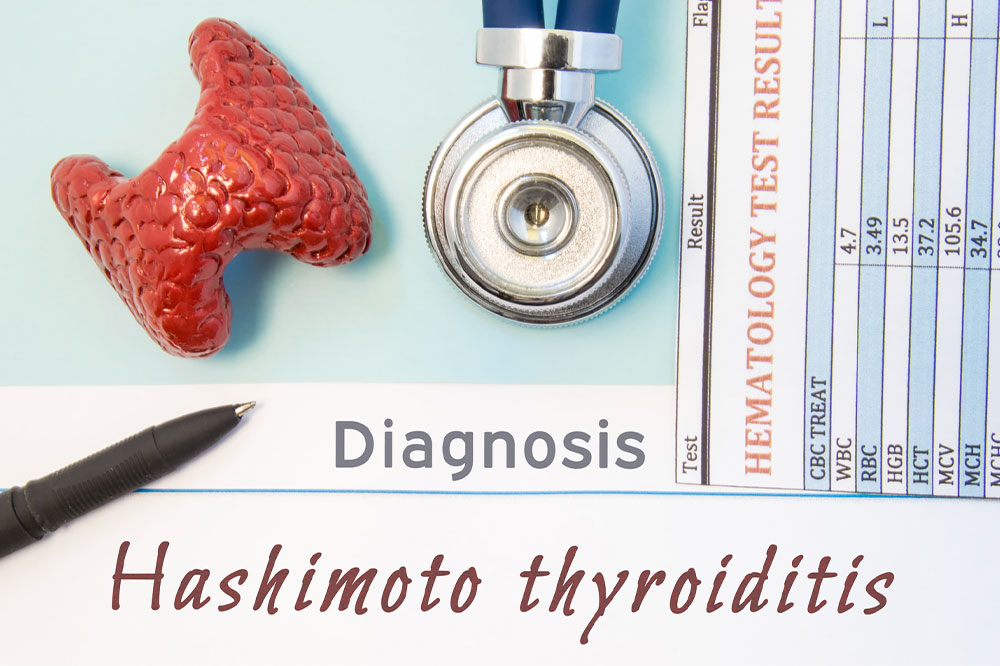
Hashimoto’s thyroiditis – Symptoms, Causes, and Management
Hashimoto’s thyroiditis is an autoimmune disorder that affects the thyroid gland in the body. In this condition, the immune system mistakenly targets and attacks the thyroid’s hormone-producing cells, leading to health complications. Thyroid damage caused by Hashimoto’s thyroiditis may lead to excessive amounts of thyroid hormones released into the bloodstream, leading to health conditions like hyperthyroidism. Here’s what you need to know about Hashimoto’s thyroiditis to facilitate early diagnosis and timely treatment.
Causes
As mentioned earlier, in this autoimmune disease, the body’s immune system accidentally starts attacking the thyroid cells mistaking them for a foreign bacteria or a virus. The reason behind this remains unknown; however, there are some contributing factors that could trigger the disease, like genetic factors, environmental triggers like infection, stress or radiation exposure, and even interactions between environmental and genetic factors.
Symptoms
This disease progresses very slowly over the years, so it is difficult to diagnose the condition as the symptoms are not very noticeable. However, as thyroid hormone production slows down over time in the body, the following symptoms will appear-
- Increased sensitivity to cold
- Dry skin
- Constipation
- Joint pain and stiffness
- Increased sleepiness
- Problems concentrating and with memory
- Muscle weakness
- Muscle aches, tenderness, and stiffness
- Puffy face
- Hair loss
- Brittle nails
- Enlargement of the tongue
- Swelling of the thyroid – called goiter
- Irregular or excessive menstrual bleeding
- Fatigue and sluggishness
Since various other health conditions share the abovementioned symptoms, it is important to get regular health checkups done to ensure that the hormones in the body are functioning well. If you see any irregularities in these tests over the years, seek a healthcare professional’s intervention immediately.
Treatment
For individuals with mild hypothyroidism, regular testing and lifestyle changes are suggested instead of treatments to keep the thyroid levels in check. It includes the Thyroid Stimulating Hormone (TSH) test. However, hypothyroidism, which is associated with this disease, needs treatment like T-4 hormone replacement therapy.
T-4 hormone replacement therapy
It is a treatment plan which uses a synthetic hormone known as levothyroxine. It contains Levoxyl, Synthroid, and more. This synthetic hormone functions similarly to how the naturally producing hormone in the thyroid gland would work in the body. The main objective of this treatment plan is to ensure that the T4 hormone levels in the body remain at a healthy level, which can help improve the symptoms of hypothyroidism.
However, it is pertinent to note that excessive amounts of the hormone may result in side effects like bone loss which can lead to complications like osteoporosis and irregular heartbeats.
T-3 hormone replacement therapy
For some people, T-3 hormone therapy is also advised if those hormone levels are low in the body. It involves a detailed analysis and diagnosis.
Before suggesting a treatment plan, a healthcare professional might ask for a detailed diagnosis and health history of the patient, which includes personal details like age, weight, current thyroid production level, and other related health factors which matter. Once the doctor has analyzed this data, they can provide the right quantity of synthetic hormone for the patient for normal thyroid functioning. It is a lifelong treatment, and some changes can be made in the quantity of synthetic hormone taken after regular testing, which the doctor will decide.




